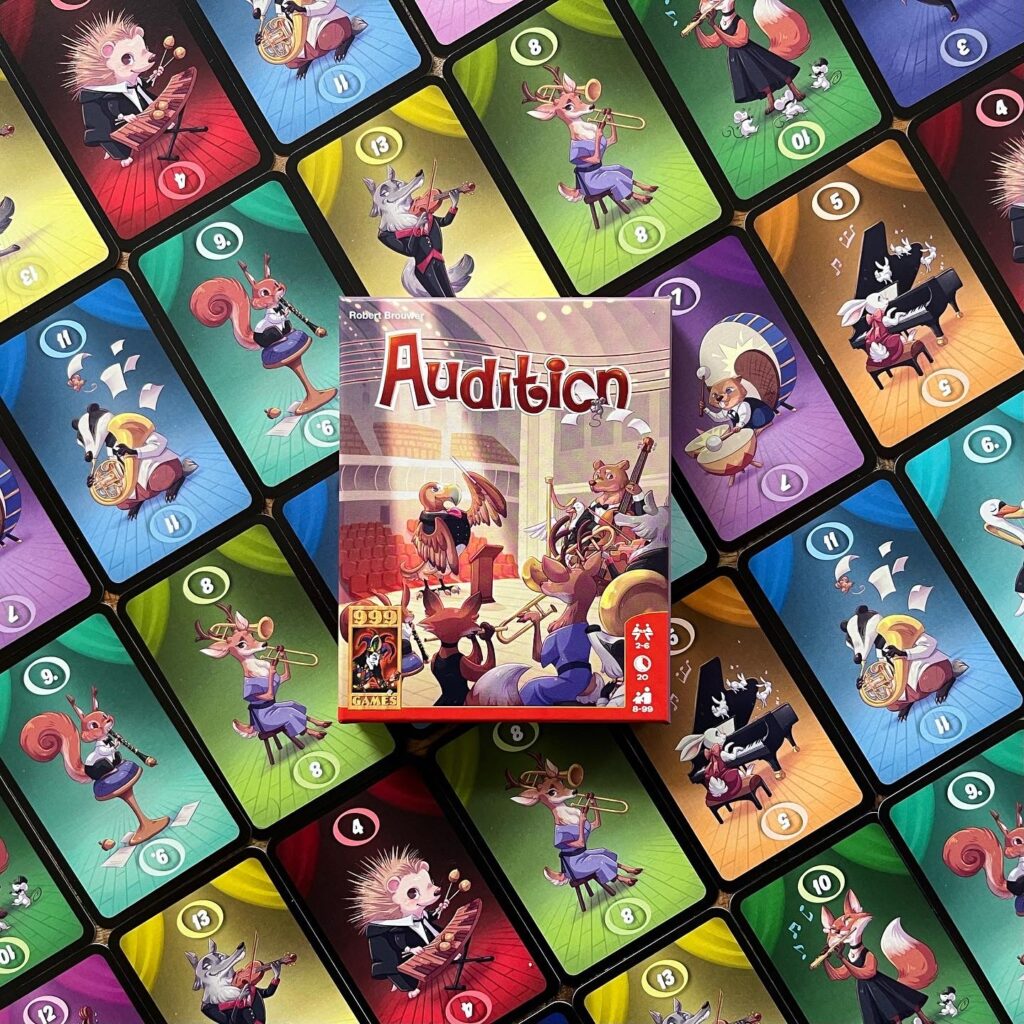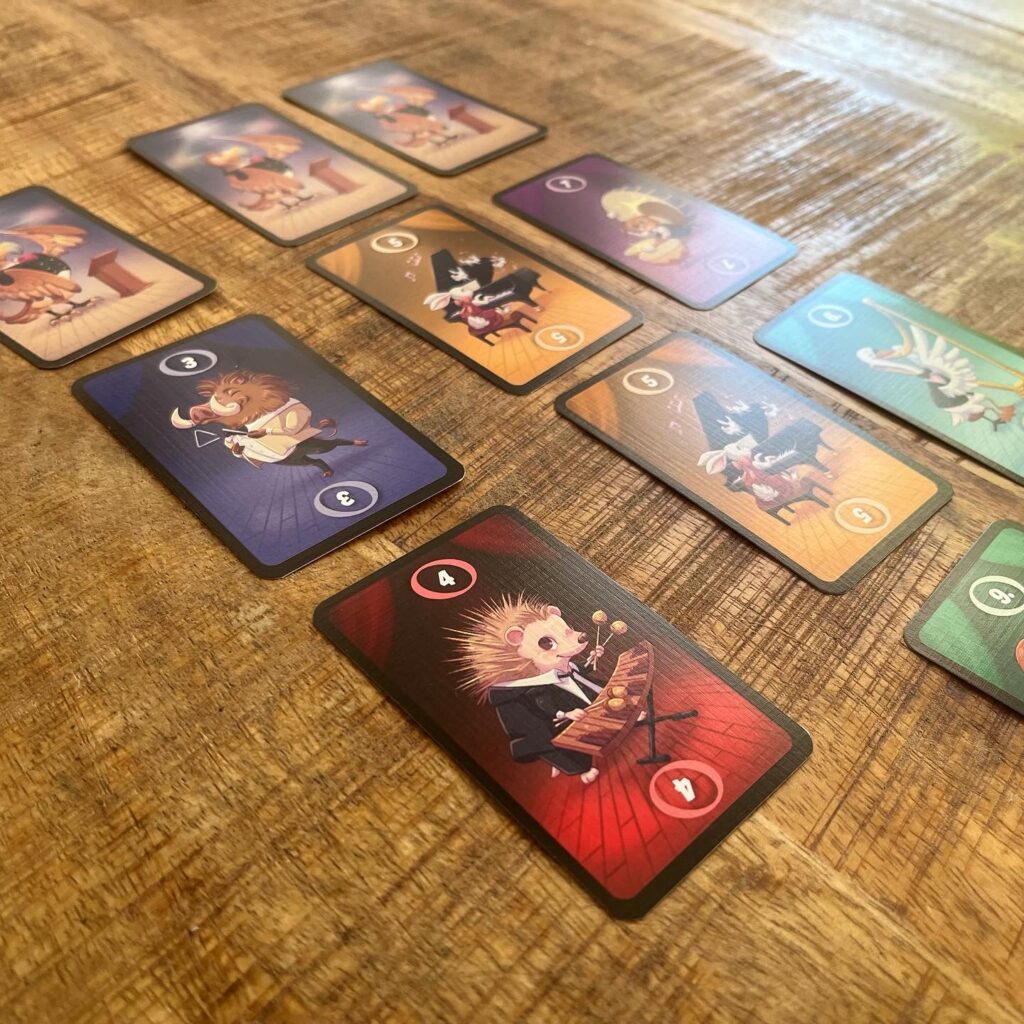Dripping with cold sweat and anxiety, you enter the stage. Is your instrument in tune? Have your fingers settled down after the long rehearsal? Once you are on stage, the curtain rises and you put your bow on the strings, the curtain falls on any stress or anxiety. Your audition goes flawlessly and you are chosen as a soloist for a major production: your dream is finally coming true. How does the audition fare for the other animals?
The game Audition is a simple card game with an equally simple gameplay. A gang of animals (a deck with all animal cards) goes on audition and it is up to each player to put together the best group of musicians, but beware: only soloists and quartets gain prestige and therefore points. Soloists score one point each at the end of the game and each quartet scores five points. Any other composition? Then you are not through to the next round of this talent show.

The beastly gang consists of different animals/musicians with different values from 3 to 13. The value does not indicate an amount of points, but rather the amount of animals with that number. So of the pianists with the value 5, there are 5 beasts present in the draw pile. Depending on the number of players, animals with a specific number are not shuffled through the draw pile, but are placed back in the box. These animals do not even have to audition and are a priori unsuitable for selection. Who would have thought classical music was so merciless!
As many conductors are placed on the table each round as the amount of players. Players will draw a card each turn and stick it in a column under the conductors (maximum 4) – or they choose to take the conductor and all the cards under this conductor in front of them. If a player takes a conductor, the round ends immediately for that player. A round is over once every player has a conductor in front of him. Players may not take a conductor in front of them unless that conductor also has a musician. At the end of the round, conductors are placed back in the centre of the table and another round follows until the draw pile is empty.
As before, players start distributing and collecting musicians. They must be careful to take just enough cards from a particular set, as too many or too few cards of a particular animal/number and this type of musician does not score any points at all.


The basic version of Audtion is a very simple game, which is best enjoyed with a larger group of players. Audition is very easy to explain and therefore well suited for a group of less experienced players who want to quickly play a light-hearted game without too much fuss, but with an inviting theme. Apart from the scoring (soloists and quartets) and the illustrations, the music theme is otherwise not explicitly present.
Want more of a challenge? Then the variants are probably suited to your liking. Players can change the conductors with a set of action cards that make the game a bit more complex and quirky. Players now have to take into account special rules and actions that apply if they want to grab a specific column of musicians. There is a second variant where a number of animals are randomly taken from the pile. This prevents players from relying mainly on statistics and counting out cards, making the course of play a little less predictable. This may introduce more luck, but makes for a more dynamic gaming experience as far as I am concerned.




